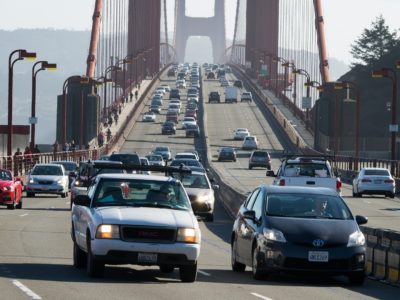Lining up for endangerment litigation
February 16 marked the deadline to challenge EPA’s finding that greenhouse gas emissions endanger public health and welfare in federal court. According to BNA’s Environment Reporter, 16 such challenges were filed. The earliest seems to have come from an entity called the “Coalition for Responsible Regulation,” joined by mining and livestock interests (hat tip to Global Climate Law Blog). The most high-profile litigants may be the states of Texas, Alabama, and Virginia. There are no surprises among the others, which include the U.S. Chamber of Commerce, Competitive Enterprise Institute, two groups run by global warming denier Fred Singer and, according to the Environment Reporter, “a dozen Republican members of Congress, and industry trade groups such as the National Association of Manufacturers, the American Petroleum Institute, the American Iron and Steel Institute, the American Farm Bureau Federation, and the National Mining Association.”
Texas has been particularly outspoken. Governor Rick Perry announced the state’s challenge himself at a media event, saying its purpose was “to defend hard-working Texans.” With no apparent irony, Perry argued that Texas is a leader in renewable energy but that EPA’s finding would threaten the state’s economy.
A nose count puts state support firmly behind EPA. While three states have challenged the endangerment finding, 16 others have filed petitions to intervene in support of the finding. This group includes the usual suspects such as California, Connecticut, New York, and Massachusetts, but also states not usually considered wildly green, such as Arizona (which recently announced its withdrawal from the greenhouse gas cap-and-trade initiative being developed by the Western Climate Initiative), Iowa, and Illinois.
Many of the challengers have also filed petitions asking EPA to reconsider the endangerment finding. That’s not going to happen. But the arguments in those petitions may well be a preview of the claims challengers will raise in court.
A look at those reconsideration petitions (here are links to Texas’s and the Competitive Enterprise Institute’s) shows that both they and the court challenges that have now followed are about political theater rather than anything else. Even putting aside the difficulties of establishing standing to challenge this finding, which is just one step on the road to regulation, the legal claims are strikingly weak. They center on allegations that the “Climategate” scandal undermines the bulk of the science on which EPA relied. (The US Chamber of Commerce, still stinging from criticisms of its call last summer for a “Scopes monkey trial” on climate science, describes its challenge differently, saying it focuses on “inadequacies of the process that EPA followed in triggering Clean Air Act regulation, and not on scientific issues related to climate change or endangerment.”) Other claims can only be described as bizarre, with absolutely no connection to the decision challenged. In a supplemental petition, for example, CEI argues that Massachusetts v. EPA would have been decided differently if the Court had known that EPA would later propose to tailor new source GHG rules to only the largest sources.
For the most part, this is just another roll-out of a familiar strategy favored by “sound science” advocates when they don’t hold the factual winning hand: punch as many tiny holes in the body of evidence as you can, and claim that those minor flaws make the larger body of still intact evidence meaningless. (This is not the place for extended dissection of Climategate, which Dan and Ann have posted about. But here are a few more resources: An extensive review by AP found no evidence of corruption and nothing to call global warming into question. Penn State climatologist Michael Mann, a favorite target of the deniers, has been cleared of three of four misconduct charges based on the hacked e-mail. For those with subscription access, the ScienceInsider blog of the journal Science offers this summary and analysis of criticisms of the IPCC.) That’s not a winning strategy in a lawsuit challenging expert administrative action, where the plaintiffs must show that EPA’s decision was arbitrary and capricious, essentially meaning in this context that no reasonable decisionmaker could have interpreted the facts as EPA did.
But the challengers don’t need to win in court to get what they want. They will be happy if these suits delay EPA’s greenhouse gas rulemakings, even happier if Congress continues to dawdle on greenhouse gas legislation, and ecstatic if they can somehow get legislation blocking EPA action. Their goal is gridlock, not either sound science or sensible policy.







One Reply to “Lining up for endangerment litigation”
Comments are closed.